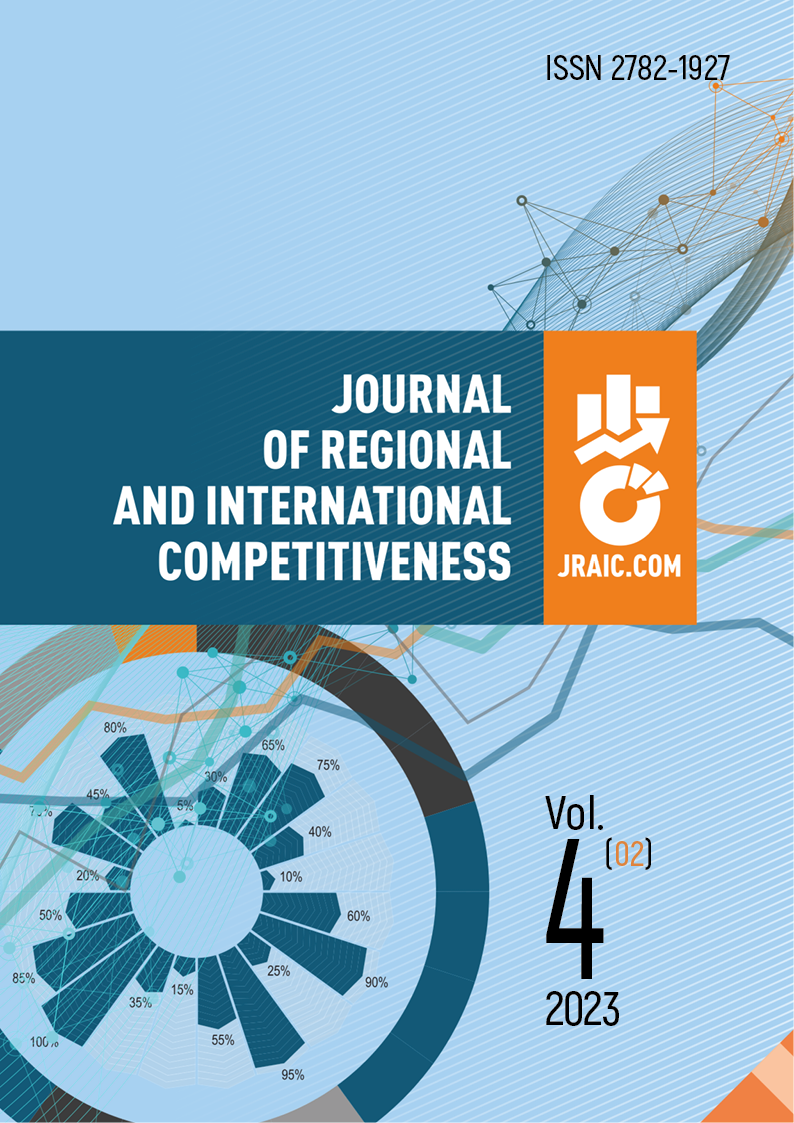Минск, Беларусь
Минск, Беларусь
The paper concerns with political and economic aspects of ensuring competitiveness in the conditions of forming a technocratic economy. Nowadays, the level of the applied technology ensures competitiveness. This level depends on both the innovation process cost, associated with R&D activities, and the result-oriented phase, determined by the industrialization of the national economy. This justifies the leading role of industrial progress in ensuring the technical and technological modernization of the national economy and, accordingly, increasing its competitiveness. The paper provides detailed political-economic and engineering characteristics of the main stages of industrialization. Therefore, the digital transformation of the economy and society is a modern stage of industrial progress associated with the introduction and use of technical devices with digital control. However, there is an underestimation of the importance in the modern domestic theory and practice of industrialization as the main driver of technical and technological progress. The authors propose a quantitative indicator which makes it possible to objectively evaluate and compare the levels of technological progressivity of various countries. On the basis of this indicator, we reveal a critical delay of Belarus and Russia from strategic competitors in the field of equipment and technology. Meanwhile, it is a serious threat to their economic and national security. Nowadays, formation and active implementation of the strategy of neo-industrialization (new digital industrialization) is the main direction of increasing the level of technological progressivity and competitiveness of socioeconomic systems. Also we provide the general recommendations to improve the technical and technological equipment of the economy of the Union State of Russia and Belarus and, as a result, their economic and national security.
COMPETITIVENESS, TECHNICAL AND TECHNOLOGICAL PROGRESS, RESEARCH AND DEVELOPMENT, INDUSTRIALIZATION, SCIENCE INTENSITY OF GDP, THE LEVEL OF TECHNOLOGICAL PROGRESSIVENESS OF THE NATIONAL ECONOMY
1. Baynev, V. F., & Goraeva, T. Yu. (2023). In Search of a Model of Safe Development: A Resource-Useful Approach to the Management of Scientific and Technical Progress. Ekonomist, (4), 44-52 (in Russian).
2. Bogdan, N. I. (2022). To the question of indicators of innovative development in the conditions of modern challenges. Minsk: Zakon i ekonomika (in Russian).
3. Goraeva, T. Yu. (2020). High-tech sector of the economy: state, trends, mechanisms of formation and development. Grodno: YurSaPrint (in Russian).
4. Gordeev, V. A., & Gordeev, A.A. (2012). The educational component of domestic industrialization. Vestnik Kostromskogo gosudarstvennogo universitetaim im. N.A.Nekrasova, (6), 40-43 (in Russian).
5. Gordeev, V. A., & Shkiotov, S. V. (2019). Digital economy from the position of theoretical economy. Vestnik Tverskogo gosudarstvennogo universiteta. Seriya: Ekonomika i upravlenie, (2), 250-253 (in Russian).
6. Grishkov, V. F. (2023). Soviet industrialization and its lessons for the present. Ekonomika i upravlenie, (2), 120-131 (in Russian).
7. Gubanov, S. S. (2012) State breakthrough: neo-industrialization of Russia and verticalintegration. Moscow: Knizhny Mir (in Russian).
8. Gubanov, S. S. (2023). Neo-industrialization as a guarantee of the stability of Russia and Belarus. Gosudarstvennoe regulirovanie ekonomiki i povyshenie effektivnosti deyatel’nosti sub”ektov hozyajstvovaniya: sbornik nauchnyh statej XVII Mezhdunarodnoj nauchno-prakticheskoj konferencii, posvyashchennoj pamyati professora S. A. Peliha. Minsk, 20 aprelya 2023 goda. Minsk: Akademiya upravleniya pri Prezidente Respubliki Belarus (in Russian).
9. Gursky, V. L., Solodovnikov, S. Yu., Sergievich, T. V., & Meleshko, Yu. V. (2021). Modernization of the Belarusian industry in new technological and geo-economic conditions. Minsk: Belorusskaya nauka (in Russian).
10. Makarov, V. L., & Lugachev, M. I. (2019). On the waves of digitalization.Vestnik Moskovskogo universiteta. Seriya 6: Ekonomika, (6), 3-8 (in Russian).
11. Schwab, K. (2016). The fourth industrial revolution. Moscow: Eksmo (in Russian).
12. Sklyar, M. A., & Kudryavtseva, K. V. (2019). Digitalization: main directions, advantages and risks. Ekonomicheskoe vozrozhdenie Rossii, (3), 103-114 (in Russian).
13. Zakhodyakin, I. V. (2008). Post-industrial economy - what does this concept mean in the modern world? Kreativnaya ekonomika, 2(1), 97-100 (in Russian).
14. Zhang, B., Baynev, V. F. (2021). Industrial and technological progress of China: Chinese civilization on the way to the knowledge economy. Minsk: Zakon i ekonomika (in Russian).
15. Shlychkov, S. V. (Ed.). (2022). High-tech and science-intensive sector of the national economy: state and development prospects. Minsk: GU «BelISA» (in Russian).



















